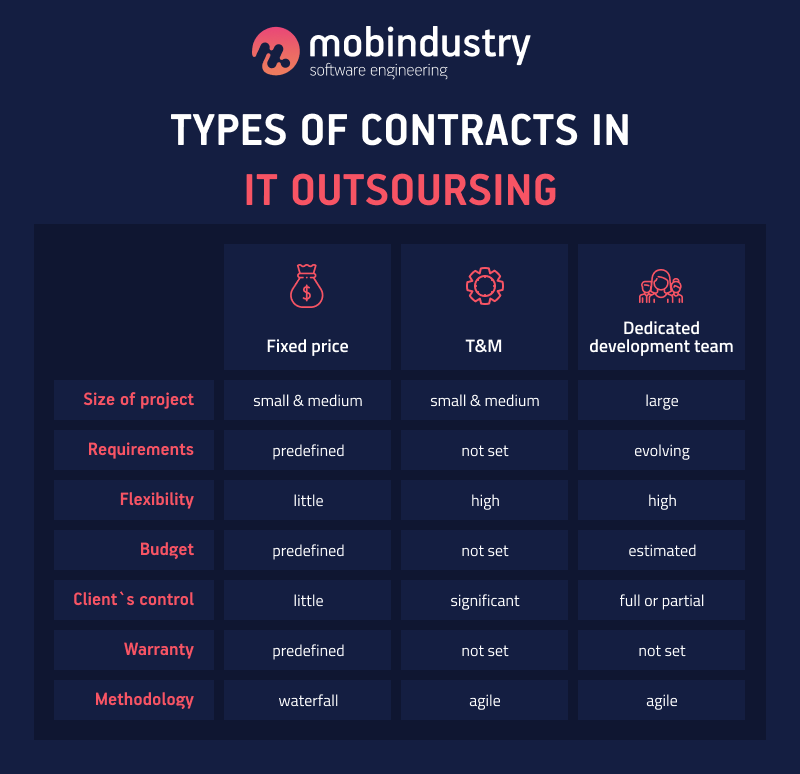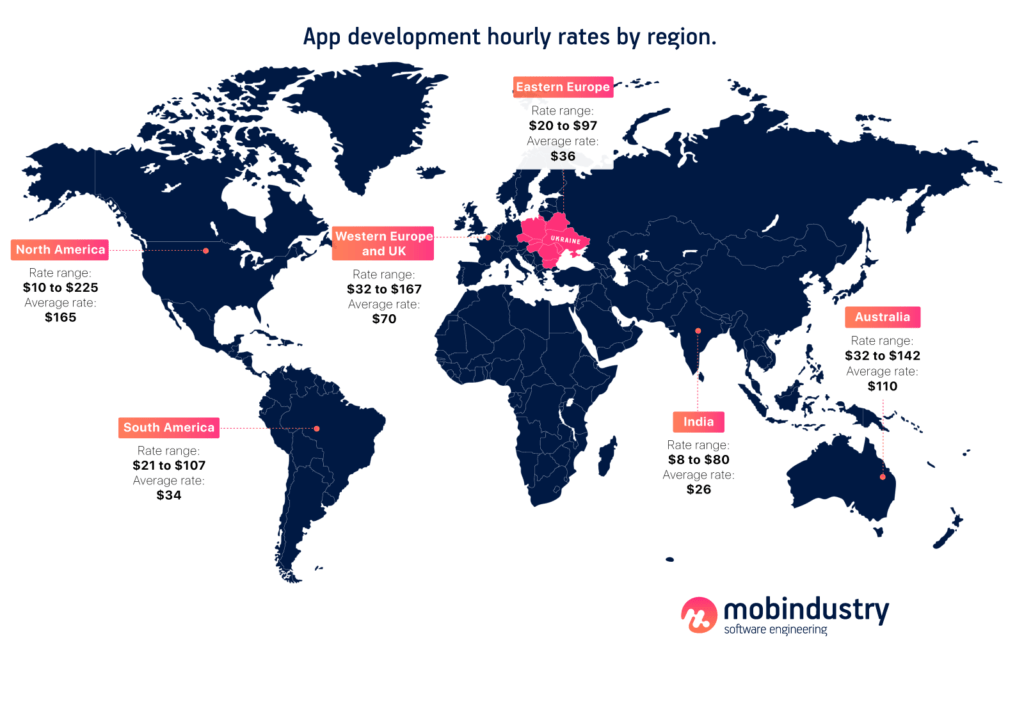Dedicated Software Development Team: When you Need It and How to Hire
Hiring a dedicated development team has already become a practice for lots of businesses. Is it a good option for you? Where do you find great specialists that will deliver software on time and within budget? Learn from this article.
Hiring a dedicated development team has already become a practice for lots of businesses. Is it a good option for you? Where do you find great specialists that will deliver software on time and within budget? Learn from this article.
The fight for talent is real. Especially in the tech market — companies fight for developers and other technical specialists, and the recruitment process can take months. That’s why for many businesses hiring dedicated software development teams has become a viable option.
The tech market is overheated, and finding a perfect in-house specialist can take months. What business has time for this? Dedicated development teams are the pefect alternative that will get you devoted experts fast
There are many benefits to hiring dedicated developers: some companies choose this type of cooperation to expand their current in-house team, others want to save time and money, and others just don’t have a large enough project to sustain in-house developers on an ongoing basis.
In this article, you’ll learn if a dedicated software development team is for you, how much it costs to hire dedicated developers, and how to save yourself a headache by doing this right.
What is a dedicated team model and how does it work?
A dedicated team model is a form of outsourcing cooperation where you as a client get a whole development team at your disposal, to work on your software product for a long-term period.
A client decides on requirements like the work schedule, the number of members, and the scope of work. The team is formed based on these parameters and each member is agreed with a client as well.
Basically, hiring a dedicated team is almost the same as hiring remote in-house specialists, minus the costs associated with them. With a dedicated team, a client only pays for the number of hours or the work each expert spent on a project.
Pros and cons of a dedicated software development team
The dedicated team model is extremely popular, and it’s no wonder: it has lots of pros! Let’s talk about them in detail.
- Full devotion to your project
- You choose each member
- Team is already close-knit
- You can get management support
- Often more cost-effective than hiring in-house
- You’re able to scale your team at any time
- Time-zone differences
- Remote-only work
- Full focus. A dedicated team is yours only, and it’s fully immersed in your business goals, challenges and issues. You’ll never get your team members replaced unexpectedly and waste time familiarizing new developers with the project.
- Control over who you work with. A software development company can only suggest their developers, but choosing the right people for the project is your call.
- Teamwork at its finest. Unlike in-house developers that need time to meet each other and learn to cooperate, dedicated team members are already working in one company, so they know each other and collaborate efficiently.
- Professional management. You can choose to manage your dedicated team yourself or get a manager from the same company, who already knows the team and can save you lots of hassle by managing all the processes and reporting them to you.
- Saving costs. Unlike hiring in-house, with dedicated software teams you pay only for the actual work put into your project. You don’t need to worry about anything like salaries, benefits, HR expenses, taxes, workspace, equipment, and so on.
- Fast scaling. A dedicated team can scale at any time: you can add developers to increase the capacity, or reduce the team size if your project is on pause. Flexibility is one of the largest benefits of a dedicated software team.
Like anything in this world, the dedicated team model has its cons you should be aware of beforehand. They are:
- Remote work. A dedicated team is a remote team, so you’ll encounter all the challenges of remote collaboration. After the COVID-19 pandemic, however, the world has made a shift toward remote work, and most companies work like this even with their in-house teams. The good news is, dedicated teams used to work remotely years before it became mainstream, so they’re well equipped to handle any challenges.
- Different time zones. This is partly a remote work challenge, and you’ll encounter it if you decide to collaborate with a company from another continent. Although it may be very beneficial moneywise, you’ll have to deal with timezone differences. From our experience at Mobindustry, I can tell that it’s not a big deal: we have clients from all over the world and successfully work with companies in the US, Australia, Europe, etc.
How to build your own dedicated development team: a step-by-step guide
Step 1. Form your goals and requirements
Before you start searching for your perfect dedicated team, decide on what exactly you want to achieve, what the scope of work will be, and what specialists you’ll need to fulfill this goal in a certain time.
If you haven’t had experience working with a software development team, you can always get a consultation, so that specialists can suggest the best team configuration for your needs.
At this point, you should also decide on your budget, as it will define the size of your future dedicated specialists and their hourly rate.
Step 2. Choose a cooperation and management model
You need to decide whether you want a full team at your disposal, or you’d just like to hire several specialists to become a part of your existing team. You should also know whether you’d like to manage them internally, or you’ll need to hire a project manager from your vendor as well.
Another two models are fixed price and time-and-material. They impact the discovery phase which includes planning and estimation, and I’ll talk about them in detail later in the article.
Step 3. Find and interview your candidates
Fist thing you need to do is find a reliable vendor who has already chosen developers and specialists with the right skill set. Here are the resources you can use to find a software development company that provides dedicated specialists:
- Ask for recommendations from your business partners and acquaintances
- Check popular listings like Clutch.co and Goodfirms for reviews
- Use Google to search for specific content and vendors’ websites to see what they offer
- Check companies’ portfolios to see what projects they’ve worked on so far
Once you shortlist your potential vendors, it’s time to interview them. Contact them, list your requirements and goals, and then interview the individual candidates.
If you have no technical background, I’d suggest involving a third-party tech specialist that you trust so that they can conduct technical interviews and confirm the skill level of individual developers and other specialists.
Pay close attention to the soft skills of your candidates as well, so that your communication is productive and clear.
Step 4. Choose your team members and start the development
Now it’s time to form a team, sign a contract and start the development process. Do regular checkups with all specialists so that everyone is on the same page.
If you decided to hire a project manager as well, they’ll send you regular reports on the progress. They will also confirm tasks with you, communicate with team members, and make sure your project is delivered on time.
Fixed price vs time-and-material in dedicated teams
Dedicated teams can work according to two main pricing models: fixed price and time and materials. What are the differences?

According to a fixed price model, you pay only what was agreed upon at the start of the project, after it was estimated. This option seems safer, as you don’t need to worry about going over budget, however, it has significant pitfalls.
Firstly, it’s hard to estimate a project fully, because there are too many factors that can influence the time and even the tech stack along the line. That’s why, project managers and developers need to include all the possible risks, which eventually inflates the fixed price.
Secondly, most modern projects are dynamic: business needs and requirements change with time, and a rare project goes exactly according to the predetermined plan without any changes.
For these reasons, the fixed price model works only for small and simple projects.
The time and materials model, on the other hand, is very flexible, as you pay for the number of hours put into your project, so you can request changes at any time, change the team size, the functionality, or the order of executing certain tasks, depending on your current needs, market situation and user demands.
The time and materials model is suitable for projects of any size and complexity and works best for the dedicated team model.
How much does it cost to hire a dedicated development team?
The cost of hiring a dedicated development team depends on lots of different factors. They include:
- The scope of your project
- The size of your team
- The hourly rates of the specialists
The most influential factor is of course the hourly rate of each specialist in your dedicated team. The hourly rate depends on:
- Your vendor
- Your specialists’ location
- Your team’s skill level and experience
The location heavily influences the hourly rate: two specialists with an identical skill set and experience, that live in the US and Ukraine can have a 4x difference in their hourly rates. The cost of living is one of the most important factors, and by choosing a vendor from another country, you can use this difference to your advantage.

The hourly rates also vary from vendor to vendor, even if they’re in the same location. And, of course, each vendor can offer you specialists with different skill levels and experience: you can hire only senior developers to your project team structure, or mix them up with middle specialists as well.
Each specialist will have different hourly rates based on their specialty, skillset, and years of experience. These are all types of specialists you can hire to your dedicated team:
- Mobile app developers
- Front-end developers
- Web developers
- DevOps engineers
- Quality assurance specialists
- Project managers
- Business analysts
- Designers
- Marketing specialists
- Team leads
- Product designers
- UX writers
As you can see, the price to hire a dedicated software development team can be very different, but it will probably still be more cost-efficient than hiring in-house specialists: here, you’ll need to pay only for the number of hours put into your project.
When should you choose a dedicated team: top 3 cases
When choosing between hiring a dedicated project team and any other option, you need to consider your individual situation, available resources, and needs. Here are the main cases where a dedicated team is likely the most convenient and cost-effective option.
You’re an early-stage startup, and you need developers now
The startup environment is fast-paced, and entrepreneurs prefer to put all their resources into product creation and marketing. There’s no time and money really, to get an office and hire in-house experts. Usually, startups at their early stages just need an MVP they can launch as fast as possible and show to the investors or to a target audience.
This is where a dedicated team is perfect: it takes minimal time to find and hire it because the specialists are already vetted and hired by a vendor. Moreover, you can always change the team size depending on your current needs.
You don’t know exactly where to start with a digital product development
Maybe you feel that your business requires a digital product to increase your conversions, and revenue, open new business opportunities and get access to a new audience. Maybe your competitors have already started to offer their customers some digital experiences, and you’re looking for ways to do the same.
If your company hasn’t had experience with software development, you’re probably unsure how to form concrete requirements for a digital product. This is why it’s hard to hire developers in-house, because you need to lead them, right?
This is where a dedicated development team is a perfect solution. Firstly, it doesn’t require as much commitment as hiring in-house. Secondly, you can hire all kinds of specialists, including business analysts who will turn your business goals into a list of specific technical requirements.
By hiring dedicated specialists, you get access to all the experience of your vendor, and can get both business and technical advice — your specialists have worked on dozens of projects, and they know exactly what’s valued in the digital landscape!

